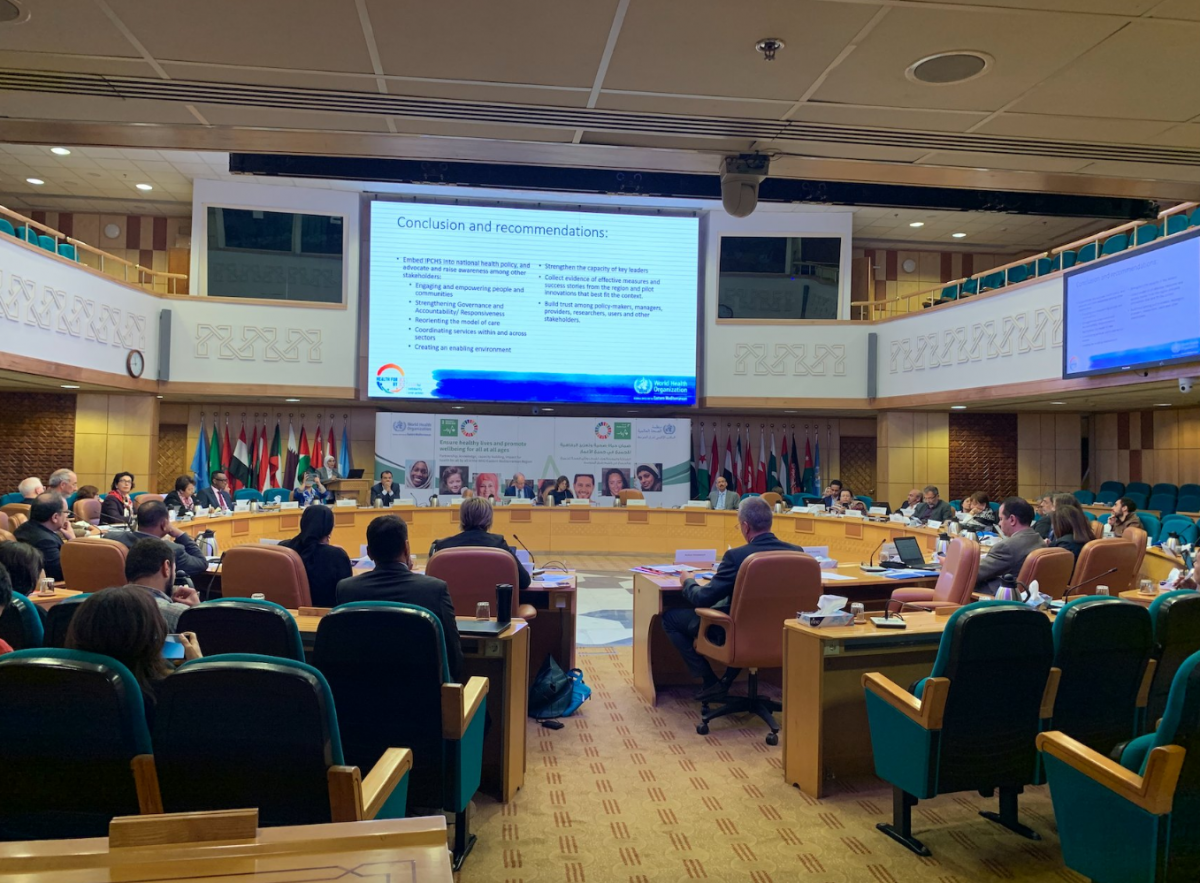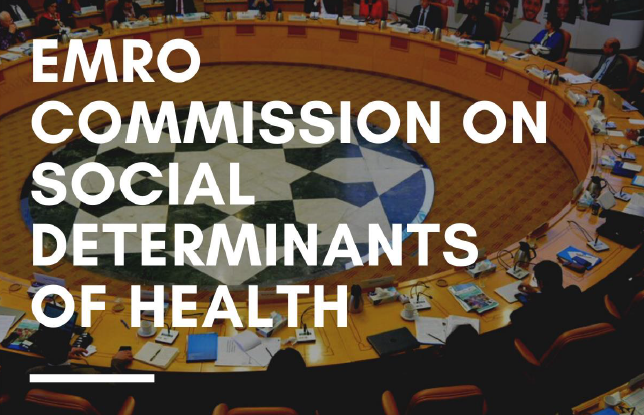University of Washington Department of Global Health professor Steve Gloyd has been named by the World Health Organization (WHO) Eastern Mediterranean Region as one of 12 commissioners on its Commission on Social Determinants of Health. Gloyd has expanded the UW involvement by inviting DGH students and faculty to help conduct research for the Commission.
The WHO Commission’s goal is to establish a comprehensive evidence base of health inequities in the Eastern Mediterranean Region, an area with a population of approximately 58 million people. The Commission will identify the factors that drive these inequities and marshal evidence for policymakers in all 22 countries of the region to foster a global movement toward its ultimate goal of health equity.
“Several groups of students and I are conducting research and writing chapters for the Commission on how conflict, migration, and religion are drivers of social determinants of health in the region” Gloyd explained. “Nine students form a Research Work Group, who include nationals of Sudan, Somalia, Syria, and Egypt, are offering not only their academic expertise but being from the region, they also offer local perspectives.” They are Sali Ahmed, Mohamed Albirair, Kristen Danforth, Fatima Al-Shimari, Sarah Lawrence, Marwa Elfadil, Ahmed El-Shafei, Andre Peralta-Santos, Saida Mahamud, and Seth Kramer. In addition, 24 students in Professor Gloyd’s fall quarter course, “Problems in Global Health” elected to contribute to the research and analysis as a project for the course, providing an excellent base of information for the Research Work Group. During the second meeting of the Commission in Amman earlier in March, the Commissioners and WHO officials gave a special recognition to the students who have provided input into the Commission’s work.

Mohamed Albirair, an MPH PhD student in Implementation Science, described part of the students’ role on the project. “We’ll be looking at how religion is a facilitator for health – for example, how spirituality affects health,” Albirair said. “Then we’ll examine specific scenarios where religious institutions affect health, and how religion can play a role in community mobilization.”
In order to identify, understand, and analyze social determinants of health – or the conditions in which people are born, grow, live, work, and age – the students will conduct literature research and consult with experts from the region. These discussions will address other themes, including equity and health systems.
“We’re also researching how someone leaving their primary country of citizenship affects their health,” Albirair said of the group of students. “We’re interested in things like how much access they have to health services and what their general health status indicators are, then tying those questions in with the data.”
Additionally, the Commission will address and identify opportunities for capacity development in the region and provide strategic guidance for the commission. Gloyd’s role in the Commission involves providing scientific rigor and drafting part of its final report on factors impacting the social determinants of health in the region. As Gloyd shared, this will include some geopolitical topics that extend beyond just science and health.
“We’ve recently been asked to contribute additional chapters in the report on occupation and sanctions, which will allow us to get into some of the nitty gritty issues in Palestine and the impact of sanctions in Iran, Iraq, and Sudan,” Gloyd said. “So, we’ll be researching issues that are fundamentally political but using a scientific framework to gather fact-based evidence.”
In addition to Gloyd and the students, support has been provided by a Strategic Advisory Committee comprised of UW professors Mohsen Naghavi from the Institute for Health Metrics and Evaluation, Resat Kesaba, Director of the Jackson School of International Studies, Amy Hagopian and Stephen Bezruchka from Health Services, and Ali Rowhani-Rabhar from Epidemiology. Community members of the Advisory Committee include Drs Aisha Jumaan of the Yemen Relief and Rehabilitation Foundation and Mohamed Ali from the Somali Health Board.
The Commission will work until September, and WHO’s final report is scheduled to be published in October 2020.
